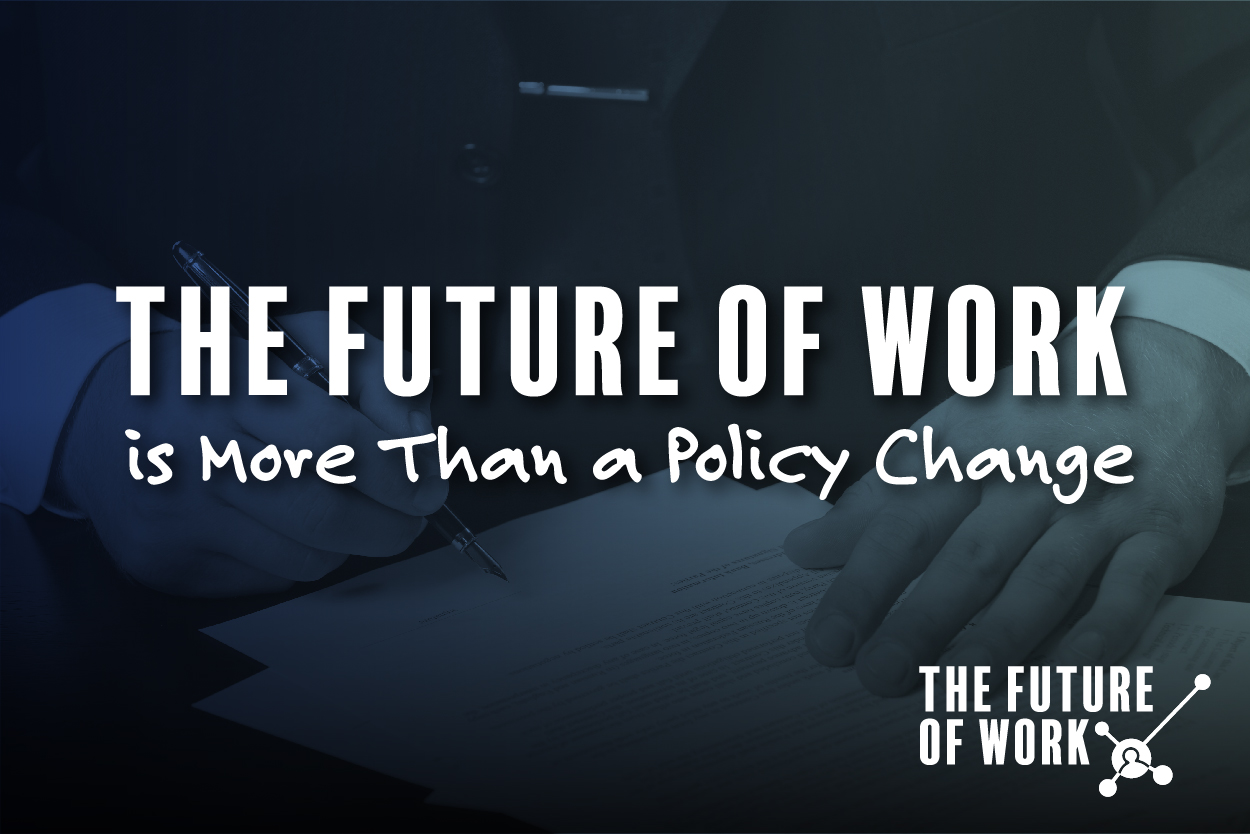by Kevin Eikenberry
Now that you are a leader get used to your role in implementing new policies. As long as there are organizations, there have been policies and procedures, and I don’t really expect that to change. Today your organization may be asking you to implement policies related to hybrid and/or flexible work. While there is a policy – the future of work is more than a policy change.
Why it is More than a Policy Change
When a new policy is created, or an existing one is changing, your role as a leader is to communicate and implement those changes. The future of work policies you have been handed are policies, but the changes they represent are far more than a simple procedural change.
These policies likely get at deeply held needs and concerns of team members – like where and when they will work. The policies and how they are implemented will have long term implications on morale and team culture – and might well impact retention/turnover as well.
Tread carefully and with your eyes open. If you do this well, it could help you as a leader for a very long time.
What You Can Do
Here are six things you can do that will help you implement this policy.
- Understand the policy. Whether this one or any other, in order to communicate and implement it effectively, you must understand it deeply. When you do you can answer questions more confidently and be a successful advocate of it (which is part of your job as a leader).
- Understand the context of the policy. If you don’t understand and can’t describe the business purpose for the policy, you can’t represent and implement it successfully.
- Understand your team members’ needs. You may not be able to change the policy, but when you share it with people and attempt to understand their possible concerns and questions, you can make the presentation of the ideas and the policy far more effective.
- Treat it like organizational change, because it is. Which means more time needs to be spent in discussing it, helping people understand it, and sharing the why. If people don’t love the policy, but understand the why, they will still support it. If they don’t like it and don’t know the why, expect significant resistance and backlash.
- Create dialogue about the changes. The more people can share their concerns, and the more they feel heard, the more likely they will ultimately accept the change.
- Get help in implementation. You do not have to do this alone. Engage the team in helping you devise the plan for implementation.
Joining the weekly Future of Work Newsletter is one of the best things you can do to become a successful leader in the new world of work. Register here.


0 comments